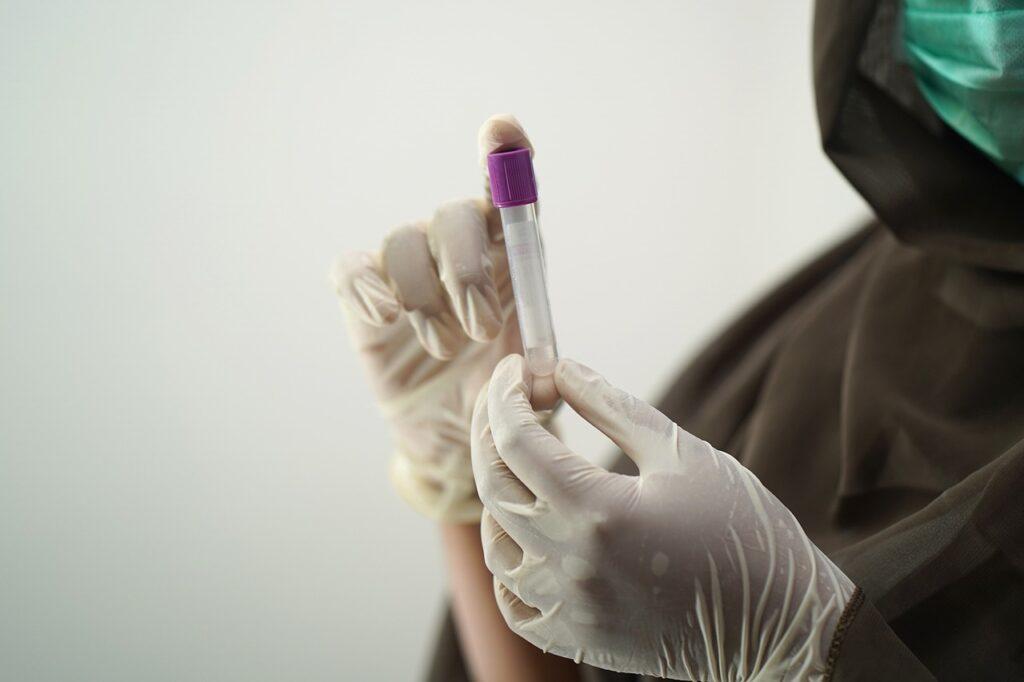Introduction:
A Complete Blood Count Test (CBC Test) is one of the most commonly ordered blood tests in medical practice. It provides valuable insights into your overall health by measuring various components of your blood, including red blood cells, white blood cells, hemoglobin, hematocrit, and platelets. While CBC test results are often within a normal range, it’s important to know what happens if your results come back abnormal. Understanding these results and the next steps can alleviate anxiety and guide you in taking appropriate action.

Understanding the Components of a CBC
Before delving into what happens with abnormal CBC test results, let’s briefly review the key components of a CBC:
1. Red Blood Cells (RBCs): These cells carry oxygen from your lungs to the rest of your body. Abnormal levels can indicate conditions like anemia or polycythemia.
2.Hemoglobin (Hgb): This protein in RBCs binds oxygen. Low levels often suggest anemia, while high levels can indicate dehydration or other issues.
3.Hematocrit (Hct): This measures the proportion of blood volume occupied by RBCs. Abnormal levels can signal various conditions, including dehydration or blood loss.
4.White Blood Cells (WBCs): These cells are crucial for fighting infections. High or low WBC counts can indicate infections, inflammation, or other health issues.
5.Platelets: These cells help with blood clotting. Abnormal platelet counts can suggest bleeding disorders or bone marrow issues.
6.Mean Corpuscular Volume (MCV): This measures the average size of your RBCs. Abnormal MCV can provide insight into types of anemia.
7 .Mean Corpuscular Hemoglobin (MCH) and Mean Corpuscular Hemoglobin Concentration (MCHC): These values give additional information about hemoglobin content in red blood cells.
What Does It Mean to Have Abnormal CBC Test Results?
If your CBC Test results fall outside the normal range, it doesn’t necessarily mean you have a serious condition. Abnormal results can be caused by a variety of factors, including:
Infections: Elevated white blood cell counts often indicate an ongoing infection.
Nutritional Deficiencies: Low hemoglobin or hematocrit levels can be linked to deficiencies in iron, vitamin B12, or folate.
Chronic Diseases: Conditions like diabetes or kidney disease may affect your blood counts.
Medications: Some medications can alter your blood cell counts.
Bone Marrow Disorders: Abnormal results might indicate issues with blood cell production.
Step-by-Step Guide to Next Steps After Abnormal CBC Test Results
If you receive abnormal CBC Test results, here’s a step-by-step guide on what to do next:
Step 1: Review Your Results with Your Doctor
The first and most crucial step is to schedule an appointment with your healthcare provider to discuss your results. Your doctor will explain what the abnormal CBC test results mean in the context of your overall health and medical history.
Ask Questions: Don’t hesitate to ask for clarification on any terms or results you don’t understand.
Discuss Symptoms: Inform your doctor about any symptoms you may be experiencing, as this can help them interpret the results more accurately.
Step 2: Understand Possible Causes
Your doctor will likely explain potential causes of your abnormal CBC test results. They may categorize these causes into:
Benign Conditions: Sometimes, fluctuations in your blood count may be temporary and not indicative of serious health issues.
Significant Conditions: Abnormal results could point to underlying health problems that require further investigation or treatment.
Step 3: Follow-Up Testing
Depending on your doctor’s assessment, you may need additional tests to pinpoint the issue:
Repeat CBC: Sometimes, a repeat test is necessary to confirm results.
Additional Blood Tests: Tests like a peripheral blood smear, iron studies, or vitamin level checks can provide more information.
Imaging Studies: In certain cases, imaging tests like X-rays or CT scans might be recommended.
Step 4: Treatment Options
If your abnormal CBC test results indicate a health issue, your doctor will discuss potential treatment options:
Lifestyle Changes: If your results are linked to nutritional deficiencies, dietary changes or supplements may be recommended.
Medications: Conditions like infections or inflammation may require antibiotic or anti-inflammatory medications.
Further Evaluation: For more serious conditions, referral to a specialist or further diagnostic procedures may be necessary.
Step 5: Monitoring and Follow-Up
After initiating treatment or monitoring, regular follow-up appointments will be essential to assess progress. Your doctor may schedule additional CBC tests to see if your blood counts return to normal.
Keep Records: Maintain a record of your cbc test results and any symptoms you experience, as this can help track changes over time.
Stay Informed: Keep an open line of communication with your healthcare provider regarding any new symptoms or concerns.
When to Seek Immediate Medical Attention
While many abnormalities in CBC test results are not emergencies, certain situations require immediate attention. Contact your doctor or seek emergency care if you experience:
– Severe fatigue or weakness
– Unexplained bleeding or bruising
– Shortness of breath
– Symptoms of infection, such as fever or chills
Receiving abnormal CBC test results can be concerning, but understanding the next steps can help you navigate the situation with confidence. By engaging in open communication with your healthcare provider, undergoing any necessary follow-up tests, and adhering to treatment recommendations, you can effectively manage your health.
Remember, an abnormal cbc test result doesn’t always indicate a serious condition, and many factors can influence your CBC. Staying informed and proactive about your health will empower you to take control of your well-being.
Contact our Healthcare Experts to book your CBC Test Today!



